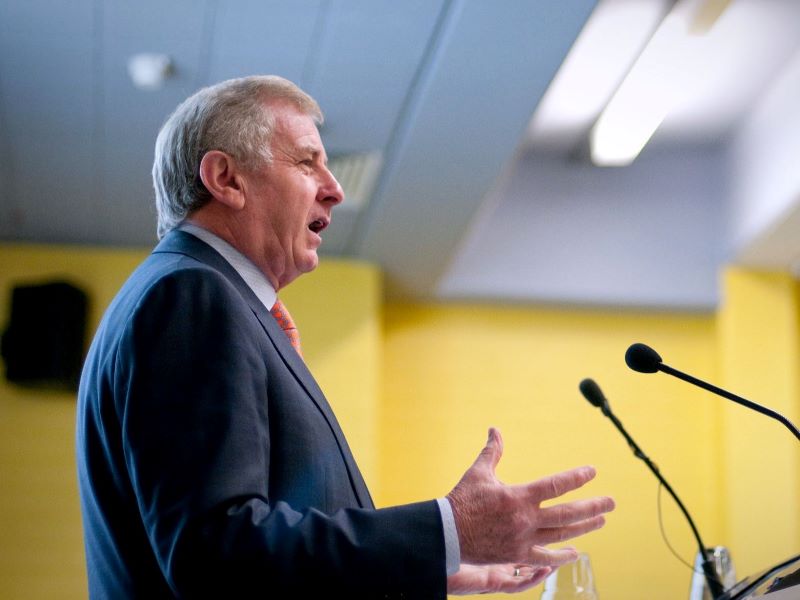Australia has a multi-billion-dollar export opportunity to move up the supply chain of the critical minerals it exports by refining the materials used in computer components, renewable technologies and electric vehicles.
That is according to the Australia-Korea Business Council (AKBC), which is preparing a final report on the burgeoning critical mineral market and the opportunity to de-risk its supply chains out of China and into South Korea and Australia.
The council, which counts resource giants, universities and various Australian governments and agencies as members, said there is growing investment and partnership between Australian and South Korean critical mineral businesses, such as Australian Strategic Materials recent deal with South Korean investors to support a neodymium oxide facility in western New South Wales.

There is a golden opportunity to develop more local infrastructure to a point where Australia is not just a “dig it and ship it” exporter, according to the AKBC.
It will consult for the next month with its members and other stakeholders on what policy refinements could help drive that change, with a final report to be released later this year.
The Republic of Korea is already Australia’s fourth biggest trading partner and has traditionally imported Australian coal, iron-ore and natural gas. But the country has committed to net-zero emissions by 2050, is transitioning it auto industry to electric vehicles, and is already a global leader in the surging electronics and semiconductor manufacturing sector.
AKBC chairman Simon Crean, a former Labor leader and Cabinet minister in the Hawke, Keating, Rudd and Gillard government, said the global disruption of the pandemic, decarbonation and the geopolitics of China means South Korea sees Australia as a “significant partner” in its transitioning economy.
“Australia’s great strength is that it has had had significant diversification the past,” Mr Crean said at the launch of AKBC discussion paper on critical minerals.
“But here in the context of a number of factors that are bubbling around at the moment — the geopolitics, the post-COVID [economy], the supply chain integrity — there’s a lot more intersections, the foundation of which exists but which needs to be built upon.”
Large manufacturers in the US and Europe are also reportedly looking to exit and de-risk Chinese markets for critical minerals over sustainability and stability concerns.
“Australia has some of the largest known reserves of lithium, cobalt, manganese, tantalum in the world and we supply just over half of the world’s lithium – we are ideally positioned to increase supply to many innovative Korean companies,” said AKBC treasurer and chair of its sub-committee on critical minerals Clare Pope.
“However, the aim is to move beyond just digging up our natural resources and shipping it overseas, and move further down the supply chain – to capitalise on our endowment of raw materials and use our international partners’ capital and expertise to aggregate them and value add to them.”
Mr Crean said South Korea fully understood the need to transition traditional sectors like energy and critical minerals to better accommodate global markets which increasingly want more secure and sustainable supply.
“I think Korea understands that,” Mr Crean said.
“The task for us is to try and work with them at the commercial level and engage constantly with the government about facilitating that sort of bringing together of the opportunities.”
The AKBC paper cites battery industry research which estimates Australia could add an additional $7.4 billion annually and 34,700 jobs to the national economy if it develops diversified battery industries by 2030. Critical mineral materials are also a key component for renewable energy technologies, and South Korea in 2018 set a target of renewable energy sources being 30–35 per cent of its energy sources by 2040.
Last year the Korean government committed to achieving carbon neutrality by 2050, while the Australian government has resisted making the same commitment.
Mr Crean told InnovationAus the Australian government needed to “bite the bullet” and set “sensible targets” on emissions reduction, or it would quickly be left behind in the global economy. He added there is already a very strong commitment from the Australian business community for net-zero emissions.
“They understand it as a de-risking aspect,” Mr Crean said.
“They understand that, in terms of where our partners are going. Whether it’s Europe, whether it’s Japan, whether it’s Korea, even China in terms of its commitments. This is what those countries are demanding, and we supply them.
“So unless we’re prepared to engage sensibly about meeting their objectives we aren’t going to be on the race.”
Do you know more? Contact James Riley via Email.

